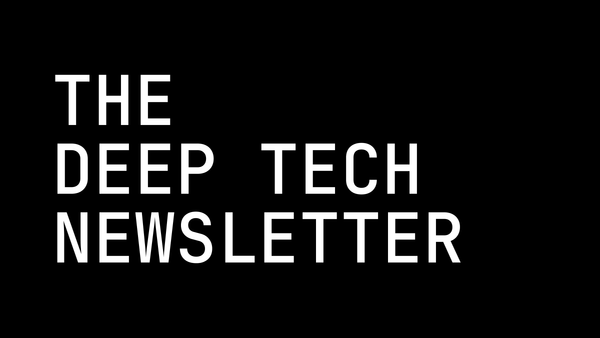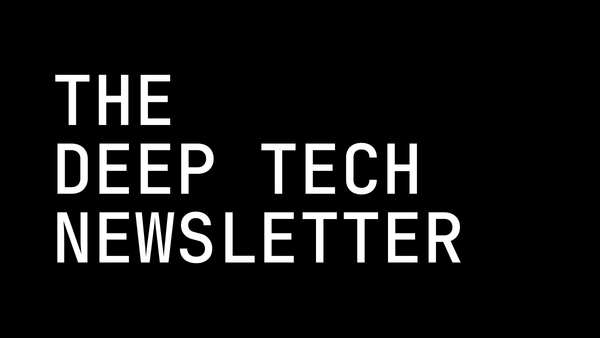Solving Civilizational Challenges with New Founding’s Joshua Clemans
Joshua Clemans is a venture partner at New Founding, a venture capital fund building and backing companies solving core problems shaping the future.
Joshua Clemans is a venture partner at New Founding, a venture capital fund building and backing companies solving core problems shaping the future.

Tell us about yourself
I grew up in the Pacific Northwest. My father worked at Boeing on the defense side from 1980 until 2020. He was one of the last of the old-school guys from the cold war era of defense. It used to be common for guys to stay 30 or 40 years at one company. By the time he retired, most people were cycling through every couple of years. So I grew up around aerospace and defense.
I studied classics, history, and philosophy at a small liberal arts college in Idaho, then started working with startups. One of them did well and was acquired in 2021. Then I met Nate Fischer and moved to Dallas to work on New Founding.
What are you building at New Founding?
New Founding was started by Nate Fischer. He and his business partner had raised a real estate fund in the 2010s and made some very smart bets, mostly in Florida and Texas. In some cases, they were buying apartments at around 25 percent of replacement cost, right at the bottom of the market in 2011 and 2012. They did well and returned a lot of capital to investors.
After those exits wrapped up, Nate could have kept going, raising bigger funds and collecting fees. But he wanted to work on more institutional, civilizational questions. So he launched New Founding. At first, he just planted a flag on Twitter and started talking about the kinds of things he wanted to build. That attracted high-agency people from all over the country.
Back in 2021 and 2022, our stance was pretty contrarian since we were politically right-wing in a space where that was almost unheard of. But the tides were already turning. A lot of people felt the same way, albeit under the surface. As the network grew, we started getting inbound opportunities in the form of investments, founder-intros, concepts worth building. If no one else was jumping on an idea, we would just start it ourselves.
We started a talent network and eventually a venture fund to give our people access to deal flow. Today, we have a portfolio of companies we’ve incubated and backed. We’re investing out of Fund I now and raising Fund II this year.
What does it mean to invest in companies solving “critical civilizational problems”? Which problems are you most focused on?
We’re living through a period of massive cultural, institutional, and technological shifts. When things are in flux, gaps open up. If you have the right people and capital, you can step into those gaps and build the next generation of institutions and companies.
A lot of the opportunity is in industries that have been neglected. Hard tech sectors like mining are great examples. For the past couple of decades, engineering talent has gone to software and SaaS. If you wanted to be a geologist or mechanical engineer, that was seen as lower status. So industries like mining haven’t changed much in 50 years. Their workforce is aging. Their processes are outdated. But they’re crucial.
There are other areas too. Education is one. Bureaucracy is another. Our bureaucracies have become bloated, and AI is the perfect antidote. One company we backed helps prosecutors sort through digital crime data. We are talking about things like drug deals over Instagram DMs. That’s all digital evidence, but nobody has time to sift through it. Their tool automates that work. They went from $200,000 to $20 million in ARR in one year. It’s a great example of how technology can reduce government costs, make systems more efficient, and free people up to do more meaningful work.
Since the government is learning how to work with startups, do you think it’s a good time to be building in the same space?
I think so. I don’t have deep insight into the DOGE teams, but I’m definitely cheering them on. If they succeed, it could have a huge impact. Same with what happened at Twitter. The realignment there showed people that it was possible to take a bloated, misdirected organization, make it lean, and run it better than before. If DOGE works, you’ll see a similar effect. Not just in the U.S., other governments will start thinking the same way. They’ll realize you can apply those principles and get better results.
New Founding has a few real estate listings on the site. Are you in the city-building business as well?
Yes, that’s right. Our flagship community is in Tennessee, about an hour and a half northeast of Nashville. That project came through the network. Some folks had land they wanted to sell, and it was near a town. We raised money and bought up part of the downtown and the surrounding area. Companies started reaching out, they wanted to move facilities to Tennessee. At the same time, we had individuals—mostly people from blue states—who wanted to relocate. Some had made friends online and wanted to build a community in real life. So we launched that about a year ago. Over 40 families have moved there already with more on the way.
It’s been strong both as an investment and as a community. The land was already a good buy, on top of that we’re bringing in people who want to build something long-term. One of the pastors who moved there was recently on Tucker Carlson, which brought even more attention.
Real estate is historically a very solid bet. Right now people are looking for strong local communities. We’re already exploring other sites. We’re not trying to build cities from scratch, but we do want to help people move together and plant a flag. A lot of the past new-city ideas focused on far away places, like South America or the Mediterranean. We think you don’t need that much capital or hype. You can do it here in the U.S. and you can do it right now.
What is your approach to evaluating a founder?
We invest a lot at pre-seed and seed. At that stage, the biggest factor is the founder. Their background, yes, but also their mindset. We look for people who are willing to break through barriers.
I think of early-stage startups like raiding parties. You’ve got five to ten people. There is a leader, yes, but it’s a relatively flat-hierarchy group of killers going after a specific problem with intensity. They’re not waiting for permission. They’re climbing over walls.
In contrast, big companies are like settlements. You have your farmers and hunters and builders, qhich are customer service, sales, and engineering. It’s more stable. But at pre-seed, the people matter more than anything. The first version of the idea probably won’t last. What matters is how the team reacts. Do they keep moving? Do they adapt?
The energy of the group is huge. Napoleon said morale is worth more than size, training, and experience combined. When people are excited to work together and focused on the problem, that’s what drives progress. Of course we still look at market size and all the usual metrics. But at this stage, it’s mostly about the team and how they operate.
We ask everyone the same question to finish: How do you define deep tech?
For our purposes, deep tech is about returning to reality. It often involves a physical component. It’s tied to the real world. One way I think about it is this: if you look at all the occupations that existed before 1900, the durable parts of human civilization and you apply new technology to improve those, that’s deep tech (at least the deep tech we’re interested in).
So it’s not just software. It’s about improving the core parts of life—farming, mining, energy, transportation. Things that are tied to base reality. If you’re using tech to advance those, you’re doing deep tech.
HAUS specializes in public relations and creative services agency for deep tech startups and scaleups.




